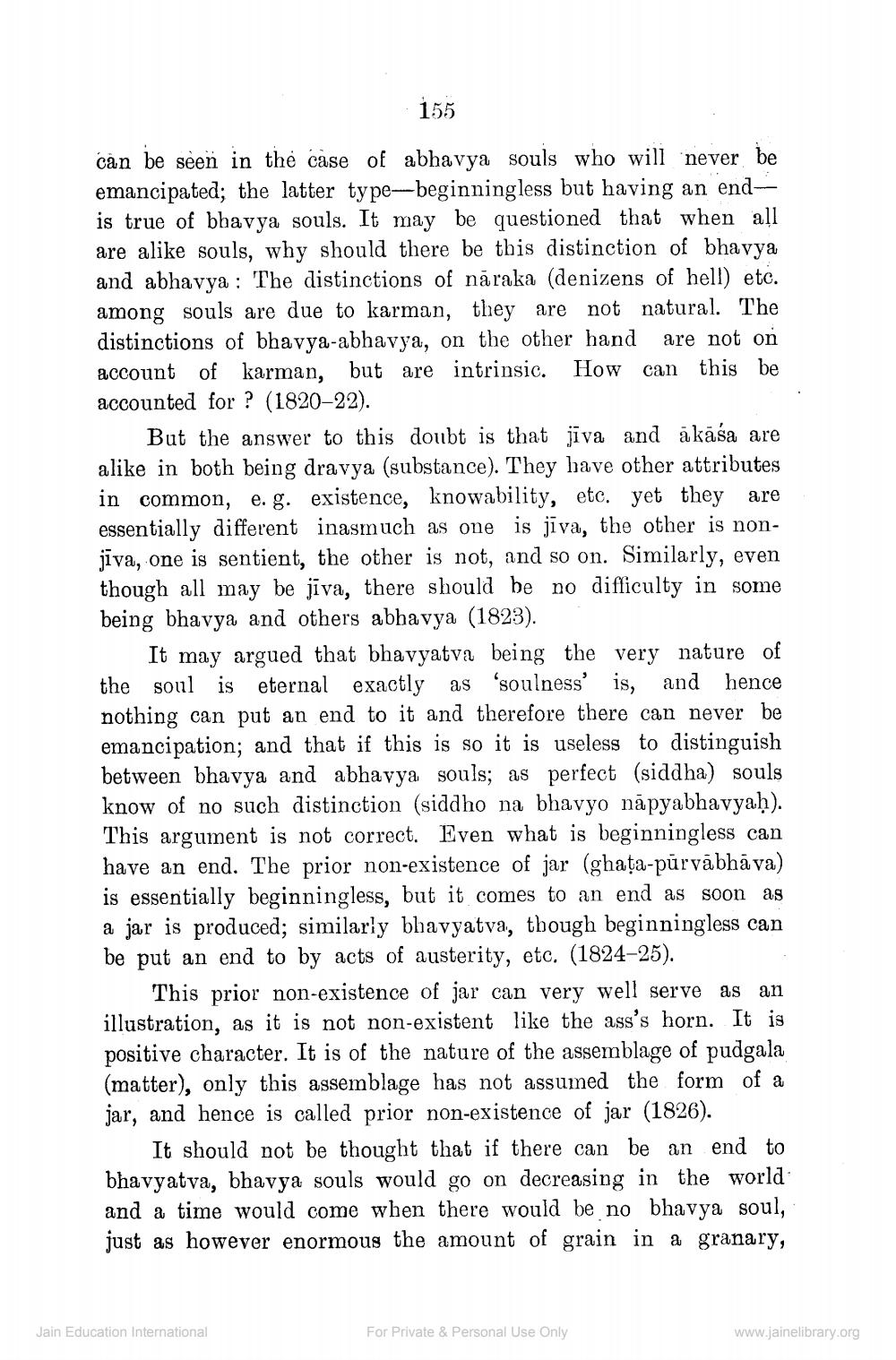________________
155
can be seen in the case of abhavya souls who will never be emancipated; the latter type--beginningless but having an endis true of bhavya souls. It may be questioned that when all are alike souls, why should there be this distinction of bhavya and abhavya : The distinctions of nāraka (denizens of hell) etc. among souls are due to karman, they are not natural. The distinctions of bhavya-abhavya, on the other hand are not on account of karman, but are intrinsic. How can this be accounted for ? (1820-22).
But the answer to this doubt is that jīva and a kāśa are alike in both being dravya (substance). They have other attributes in common, e.g. existence, knowability, etc. yet they are essentially different inasmuch as one is jiva, the other is nonjīva, one is sentient, the other is not, and so on. Similarly, even though all may be jīva, there should be no difficulty in some being bhavya and others abhavya (1823).
It may argued that bhavyatva being the very nature of the soul is eternal exactly as 'soulness' is, and hence nothing can put an end to it and therefore there can never be emancipation; and that if this is so it is useless to distinguish between bhavya and abhavya souls; as perfect (siddha) souls know of no such distinction (siddho na bhavyo nāpyabhavyaḥ). This argument is not correct. Even what is beginningless can have an end. The prior non-existence of jar (ghata-pūrvābhāva) is essentially beginningless, but it comes to an end as soon as a jar is produced; similarly bhavyatva, though beginningless can be put an end to by acts of austerity, etc. (1824–25).
This prior non-existence of jar can very well serve as an illustration, as it is not non-existent like the ass's horn. It is positive character. It is of the nature of the assemblage of pudgala (matter), only this assemblage has not assumed the form of a jar, and hence is called prior non-existence of jar (1826).
It should not be thought that if there can be an end to bhavyatva, bhavya souls would go on decreasing in the world and a time would come when there would be no bhavya soul, just as however enormous the amount of grain in a granary,
Jain Education International
For Private & Personal Use Only
www.jainelibrary.org




